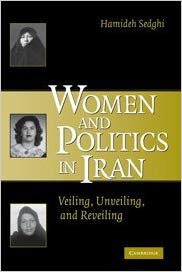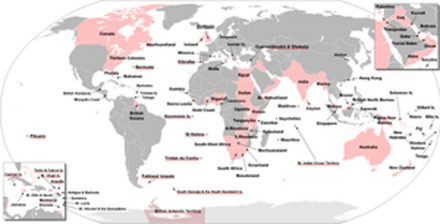 Author: Hamideh Sedghi
Author: Hamideh Sedghi
Publisher: Cambridge University Press – 341 pages
Book Review by: Sonu Chandiram
The World Economic Forum of 2018 ranked the Islamic Republic of Iran almost at the bottom – No. 140 among 145 countries surveyed – in its Global Gender Gap covering four key areas: health, education, economy and politics to gauge the state of gender equality in a country. The nations ranking below Iran were: Mali, Chad, Syria, Pakistan, and Yemen.
This report essentially measures women’s disadvantage compared to men. The four highest-ranking countries – Iceland, Norway, Sweden and Finland – have closed over 82 percent of their gender gaps, while the lowest-ranking country Yemen, has closed just 50 percent of its gender gap, with a rank of 499. The rankings of Iran, Mali, Chad, Syria and Pakistan were: 589, 582, 580, 568, and 550.
The report “assesses countries on how well they are dividing their resources and opportunities among their male and female populations, regardless of the overall levels of these resources and opportunities.”
“By providing a comprehensible framework for assessing and comparing global gender gaps and by revealing those countries that are role models in dividing these resources equitably between women and men, this Report serves as a catalyst for greater awareness as well as greater exchange between policymakers.”
The good news about Iran with respect to its Global Gender Gap score is that in 2018, it went up to 589 from 583 in 2017. But it still has a long way to go to catch up to the average score of 688 among the 145 countries measured.
This book by Hamideh Sedghi, Women and Politics in Iran: Veiling, Unveiling, and Reveiling, published a dozen years ago in 2007 is a history from the last years of the Qajar dynasty (1789-1925) to the present Islamic regime of an essentially patriarchal form of rule that has for a long time repressed Iranian women’s economic, political and social rights.
She provides a tremendous amount of clarity on the real-life struggle of women in Iran that has been woefully mischaracterized by observers both in the East and West. This is a good read!
A description of this book notes: “In contrast to Orientalist scholars who view Middle Eastern women as victims, and in opposition to Western policy makers who claim that aggressive incursions into the region will help liberate women, Sedghi links politics and culture with economics to present an integrated analysis of the private and public lives of different classes of women and their modes of resistance to state power. For Sedghi, politics matters to gender, and gender matters to politics.”
Sedghi contends that women are at the center of a political struggle between religious and secular forces and that control over their identities, sexuality and labor has been essential to the state’s consolidation of power over them both in Iran and overseas.
Below we provide you an overview of its contents and issues covered and discussed in this book:
Introduction
- Part I – Women in Early Twentieth-Century Iran
- The Qajar Dynasty, Patriarchal Households, and Women
- Part II – Women in the Kingdom of the Peacock Throne
- The Pahlavi Dynasty as a Centralizing Patriarchy
- Economic Development and the Gender Division of Labor
- The State and Gender: Repression, Reform, and Family Legislation
- Women and State
- Part III – Women in the Islamic State of Iran
- Women, the 1979 Revolution, and the Restructuring of Patriarchy
- The Gender Division of Labor
- Politics and Women’s Resistance
Conclusion
This book provides refreshingly new insights on Iranian women and the economic, political, and social difficulties in their daily lives. It is interesting reading, providing a lot of enlightenment, that demolishes the views of reporters and writers who have not spent enough time in Iran to truly understand both its rulers and its people, yet have gone ahead and propagated their biased, half-baked views upon the public.
Author:
Hamideh Sedghi is a Visiting Scholar at Harvard University’s Center for Middle Eastern Studies and a former Visiting Scholar at Columbia University. A professor of political science, her previous teaching venues include; Hobart and William Smith Colleges, the University of Richmond, Vassar College, and Villanova University.
She is the first female Iranian in the United States who has written on women in Iran from a social science perspective. Author of numerous publications, Sedghi is the recipient of many awards and honors, including the 2005 Christian Bay Award for the Best Paper presented at an American Political Science Association meeting.






